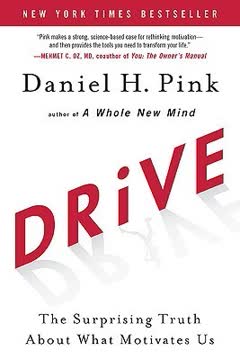Key Takeaways
1. Embrace chaos in negotiation: Learn, adapt, and influence
"Negotiation is like jazz. It is improvisation on a theme. You know where you want to go, but you don't know how to get there. It's not linear."
Negotiation is dynamic. Unlike static models that assume fixed interests and options, real-world negotiation involves constantly evolving circumstances, perceptions, and relationships. To succeed, negotiators must:
- Continuously learn about the situation and other parties
- Adapt their approach based on new information
- Influence others' perceptions and behavior
This requires a flexible mindset and the ability to deal with uncertainty. Effective negotiators view chaos as an opportunity rather than a threat, allowing them to spot creative solutions and navigate complex situations.
2. Map your negotiation landscape with the deal triangle
"The deal triangle formed by these three boundaries represents the territory of workable outcomes from everyone's point of view."
Visualize the negotiation space. The deal triangle provides a framework for understanding the range of possible agreements:
- Your baseline: Outcomes you prefer over no deal
- Their baseline: Outcomes acceptable to the other party
- External constraints: Real-world limitations (e.g., resources, deadlines)
By mapping these boundaries, negotiators can:
- Identify areas of potential agreement
- Spot opportunities to expand the deal space
- Develop strategies for moving towards mutually beneficial outcomes
This approach replaces the limited "bargaining range" model with a more nuanced understanding of negotiation possibilities.
3. Develop a robust strategy with multiple paths to success
"Negotiation strategy must allow for that reality."
Plan for uncertainty. Effective negotiators recognize that they can't control every aspect of the process. Instead, they:
- Set provisional goals that allow for flexibility
- Envision multiple paths to success
- Prepare for best-case and worst-case scenarios
- Have a Plan B (and sometimes C and D)
This approach allows negotiators to:
- Adapt to changing circumstances
- Seize unexpected opportunities
- Mitigate risks and potential setbacks
By embracing strategic flexibility, negotiators increase their chances of achieving favorable outcomes even in unpredictable situations.
4. Master paradoxes: Be calm yet alert, patient yet proactive
"To excel, negotiators must be simultaneously: calm and alert, patient and proactive, and practical and creative."
Balance seemingly opposing traits. Successful negotiators cultivate a range of complementary skills and mindsets:
- Calmness provides emotional stability, while alertness ensures responsiveness
- Patience allows for relationship-building, while proactivity drives progress
- Practicality grounds decisions, while creativity uncovers new possibilities
This balance enables negotiators to:
- Maintain composure under pressure
- Seize opportunities at the right moment
- Find innovative solutions to complex problems
By mastering these paradoxes, negotiators become more versatile and effective across various situations.
5. Improvise like a jazz musician to navigate complexity
"Jazz is negotiation. The real power of jazz—and the innovation of jazz—is that a group of people can come together and create art, improvised art, and can negotiate their agendas with each other."
Develop improvisational skills. Like jazz musicians, effective negotiators must:
- Pay close attention to others' "moves"
- Respond in real-time to unexpected developments
- Build on others' ideas to create something new
Key improvisational techniques include:
- "Yes, and..." - Accepting and building on others' offers
- Soloing and comping - Knowing when to lead and when to support
- Embracing mistakes - Viewing errors as opportunities for creativity
By adopting an improvisational mindset, negotiators can navigate complex, dynamic situations with greater agility and creativity.
6. Pay close attention and respond in real-time using the OODA loop
"Success in any encounter hinges on cycling through this loop faster than the enemy or by disrupting the enemy's ability to connect those activities efficiently."
Accelerate your decision-making. The OODA loop (Observe, Orient, Decide, Act) provides a framework for rapid adaptation:
- Observe: Gather information about the current situation
- Orient: Interpret the information based on experience and knowledge
- Decide: Choose a course of action
- Act: Implement the decision
By cycling through this loop quickly, negotiators can:
- Stay ahead of their counterparts
- Respond effectively to changing circumstances
- Seize opportunities before others do
Mastering the OODA loop allows negotiators to maintain situational awareness and make better decisions under pressure.
7. Manage critical moments and know when to say yes or no
"The time to stop negotiating is when the risk of pressing further outweighs possible gains."
Recognize pivotal decision points. Critical moments in negotiation often involve:
- Making or responding to offers
- Revealing important information
- Issuing ultimatums or deadlines
To navigate these moments effectively:
- Assess the potential risks and rewards of different actions
- Consider both short-term and long-term consequences
- Be prepared to walk away if necessary
By carefully managing critical moments, negotiators can avoid costly mistakes and capitalize on opportunities for agreement.
8. Create value through creative problem-solving and trades
"Solutions aren't the answer."
Focus on expanding the pie. Instead of viewing negotiation as a zero-sum game, look for ways to create value through:
- Identifying differences in priorities and preferences
- Making trades that benefit both parties
- Finding creative solutions to seemingly intractable problems
Techniques for value creation include:
- Brainstorming multiple options before evaluating them
- Exploring underlying interests rather than focusing on positions
- Considering non-monetary factors (e.g., timing, risk allocation)
By adopting a value-creation mindset, negotiators can achieve better outcomes for all parties involved.
9. Balance ethics and self-interest in negotiation decisions
"To know the right thing to do, you need to know who you want to be."
Consider ethical implications. Effective negotiators recognize that their actions define their character and reputation. When facing ethical dilemmas:
- Consider the universality and reciprocity of your actions
- Think about how you'd feel if your decisions were made public
- Reflect on the legacy you want to leave
Ethical considerations in negotiation include:
- Honesty and transparency
- Fairness and respect for others
- Balancing self-interest with social responsibility
By maintaining ethical standards, negotiators build trust, enhance their reputation, and create sustainable long-term relationships.
Last updated:
FAQ
What's The Art of Negotiation about?
- Improvisation Focus: The book emphasizes negotiation as an improvisational art, similar to jazz, requiring adaptability and presence of mind.
- Dynamic Nature: It highlights the fluidity of preferences, options, and relationships, urging negotiators to be agile and responsive.
- Embrace Uncertainty: Readers are encouraged to view chaos and uncertainty as opportunities for creative solutions.
Why should I read The Art of Negotiation?
- Practical Strategies: Offers real-world examples and strategies applicable to both personal and professional negotiations.
- Skill Enhancement: Provides tools to improve negotiation skills, focusing on learning, adapting, and influencing effectively.
- Unique Perspective: Emphasizes improvisation and dynamic interactions, differing from traditional negotiation texts.
What are the key takeaways of The Art of Negotiation?
- Embrace Chaos: View unexpected challenges as opportunities for new deals.
- Agility is Crucial: Stresses the importance of being adaptable and responsive in interactive processes.
- Focus on Relationships: Building rapport and understanding emotional dynamics can significantly impact outcomes.
What is the OODA loop mentioned in The Art of Negotiation?
- Decision-Making Process: Developed by John Boyd, it involves Observation, Orientation, Decision, and Action.
- Situational Awareness: Encourages observing counterparts and the environment to make informed decisions.
- Adaptability: Highlights the need for flexibility and responsiveness in dynamic situations.
How does The Art of Negotiation define effective improvisation?
- Active Listening: Starts with being fully present and attentive to respond appropriately.
- Comping and Soloing: Draws parallels to jazz, knowing when to lead and when to support.
- Proactive Experimentation: Encourages taking calculated risks for innovative solutions.
What are some strategies for managing emotions in negotiation from The Art of Negotiation?
- Emotional Balance: Importance of maintaining calmness and alertness to manage stress.
- Mindfulness Techniques: Staying focused and present to respond thoughtfully.
- Recognizing Triggers: Understanding personal triggers to prepare for stressors.
What does The Art of Negotiation say about the importance of preparation?
- Provisional Goals: Advises setting flexible goals to adapt as negotiations unfold.
- Plan B: Emphasizes having a backup plan to seize new opportunities.
- Learning and Adapting: Preparation includes anticipating changes and adjusting strategies.
What are the best quotes from The Art of Negotiation and what do they mean?
- Complex Problems: Warns against oversimplifying issues, encouraging deeper understanding.
- Negotiation as Jazz: Highlights the fluid and dynamic nature of negotiation.
- Chaos as a Friend: Encourages embracing uncertainty for creative solutions.
How does The Art of Negotiation suggest handling difficult counterparts?
- Stay Calm and Alert: Composure allows thoughtful responses to challenging behavior.
- Use Humor: Humor can diffuse tension and foster collaboration.
- Focus on Interests: Shifting from positions to interests helps find common ground.
What role does situational awareness play in negotiation according to The Art of Negotiation?
- Understanding Context: Recognizing the broader context and emotional dynamics.
- Observing Interactions: Attuning to counterparts' responses for valuable insights.
- Adapting Strategies: Enables real-time strategy adjustments for success.
How does The Art of Negotiation compare negotiation to jazz?
- Improvisation on a Theme: Both require adaptability and responsiveness to dynamic interactions.
- Comping and Soloing: Knowing when to lead and when to support others.
- Creative Solutions: Encourages taking risks and experimenting for breakthroughs.
What is the significance of "making chaos my friend" in The Art of Negotiation?
- Embrace Uncertainty: Viewing chaos as an opportunity rather than an obstacle.
- Creative Solutions: Encourages innovative approaches to unexpected challenges.
- Dynamic Adaptation: Stresses the importance of being flexible and responsive.
Review Summary
The Art of Negotiation receives mostly positive reviews, with readers praising its practical approach and insightful examples. Many appreciate the book's focus on flexibility and improvisation in negotiations, rather than rigid tactics. Some readers find the anecdotes helpful, while others consider them distracting. The book is generally viewed as accessible for beginners but may be challenging for non-native English speakers. Critics note that it lacks a systematic approach and may not provide enough concrete tools for advanced negotiators.
Similar Books










Download PDF
Download EPUB
.epub digital book format is ideal for reading ebooks on phones, tablets, and e-readers.




